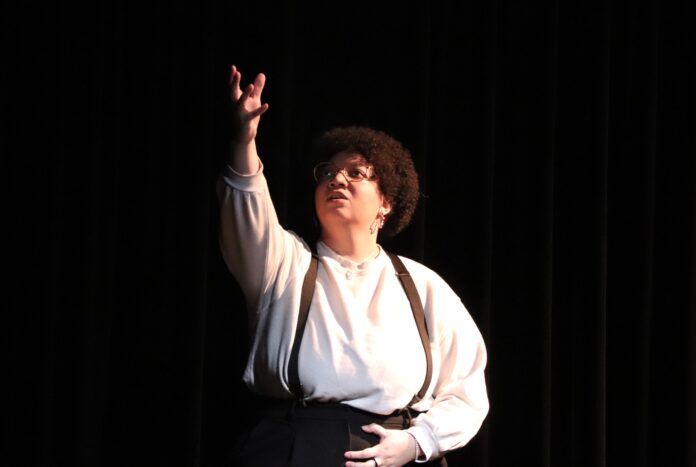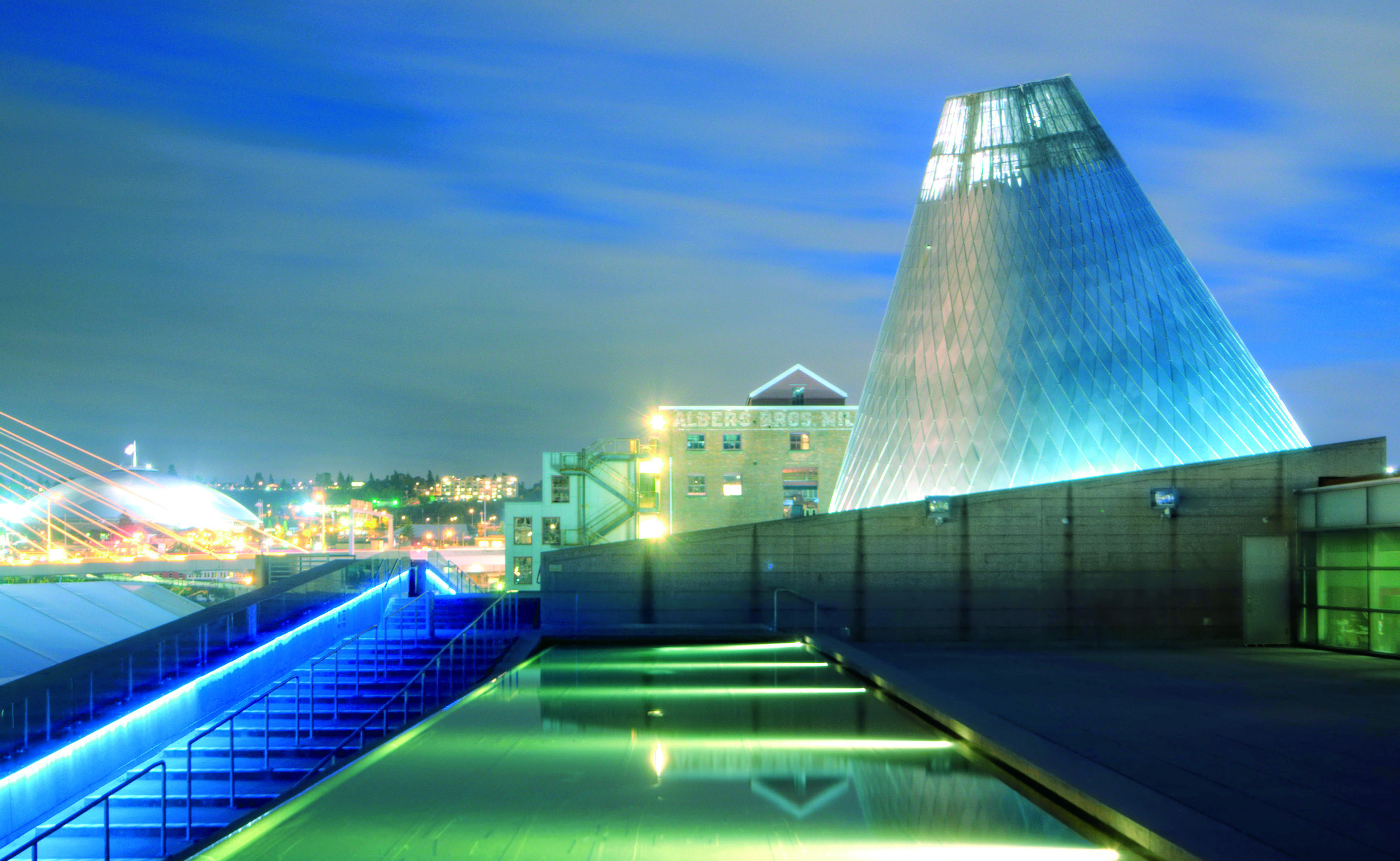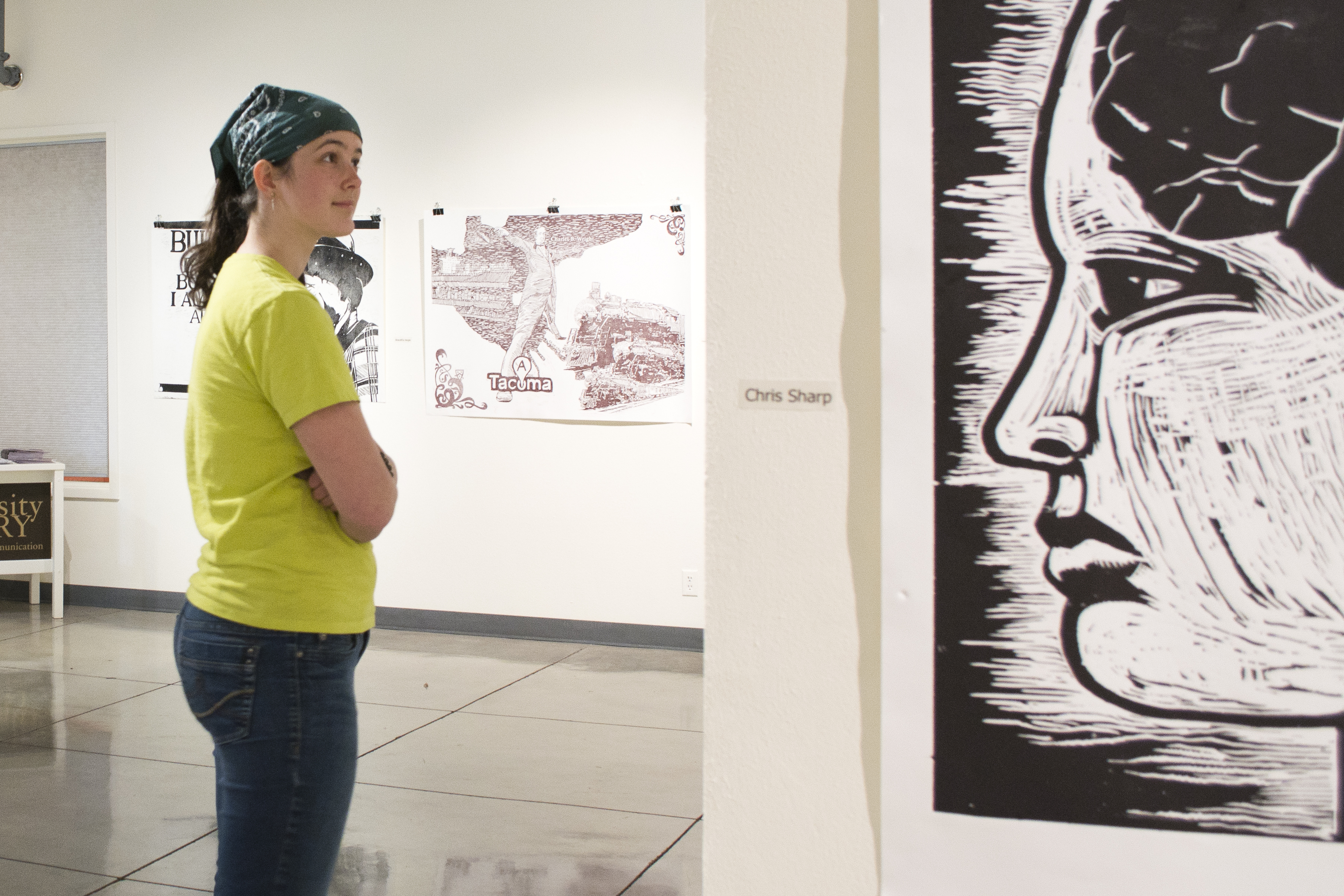In October 2022, PLU student and future first-time director, Dorothea Koetje, proposed a concept to the Night of Musical Theatre club (NOMT) – one that would deconstruct the boundaries of gender expression, vocal limitations, and other intersectional constraints inside the musical theatre world. Despite a constrictive twenty-one-day rehearsal, twenty different musical numbers, a non-sponsored limited budget, and restricted access to resources Don’t Typecast Me, was accomplished, fueled by the dedication of members.
This year’s student-led production had a unique goal to defy typecasting, a circumstance in which an actor is repeatedly cast into correlated roles based on their appearance, their voice, and commonly, behavioral stereotypes. Dorothea Koetje explains that the idea sparked from her personal experience of being limited to feminine, high-pitched soprano roles in the past. She then speculated how gender non-conforming people may face the same issue. And thus the concept was born, “I just wanted to show that the way we traditionally do things isn’t the way things have to be done.” Koetje ends with an impact, “I wanted to show that we all feel the same thing. We’re all human. We all feel.”
Cisgender and genderqueer cast members alike frequently mentioned the vocal limitations of their past musical theatre involvement. Alonna Hall, who notably performed the solo Sante Fe elaborates on their experience, “As a queer, black woman singing musical theatre… it’s hard out here. So being able to sing the most tenor white man role is really therapeutic…This is who I am in the song and I want you [the audience] to experience it with me.” This emotionally charged performance opened a gateway for audience members to connect with performers in an intimate light, sharing and understanding personal struggles represented in a performance.
Don’t Typecast Me embodies the expression of sexuality. Samantha Katz, actor and dance captain of half of the musical numbers, notes her performance of Shiksa Goddess, from The Last Five Years, “I find in a lot of media…there’s a lot more timidness to… people who are not men representing their sexuality [especially] in a hungry way.” Theatre is a form of media susceptible to societal influence but also permitted with the power to change. This adult-performed college show had the freedom and incentive to boldly express feminine and masculine sexuality. Katz continues, “It’s very empowering.”
Musical theatre demands conformity, confining traditionally feminine roles to the soprano vocal range and vice versa with the tenor range associated with masculinity. Hanne Ferguson, actor and cast member, describes past experiences as a person who identifies as nonbinary and agender, “Typically whenever I do theatre I… have to choose like one or the other in terms of gender expression.” The unique characteristics of Don’t Typecast Me enabled performers to connect to their roles with personal ambition. For Hanne, this opportunity was affirming, “I can do this and people do support me- it’s really nice to feel.”
Phoenix Leiseth, assistant stage manager for Don’t Typecast Me offers a backstage point of view. They specify that Koetje intentionally administered a backstage crew bow at the end of the show to recognize the crew’s hard work. Leiseth states that in the past they have witnessed backstage crew not receiving the same recognition as actors on the frontstage. “I’m interpreting [this show] as…a step forward and a healing of that rift. I think that we make such better theatre when we’re all working together and it’s silly to let those things divide us.”




















